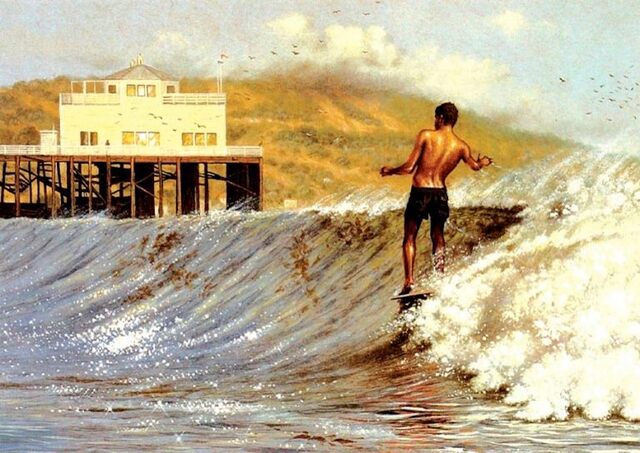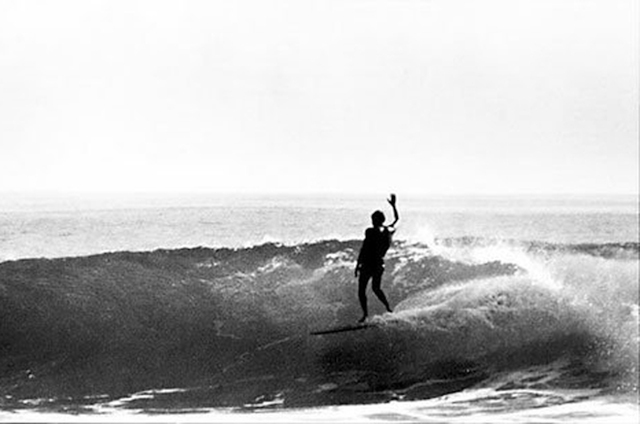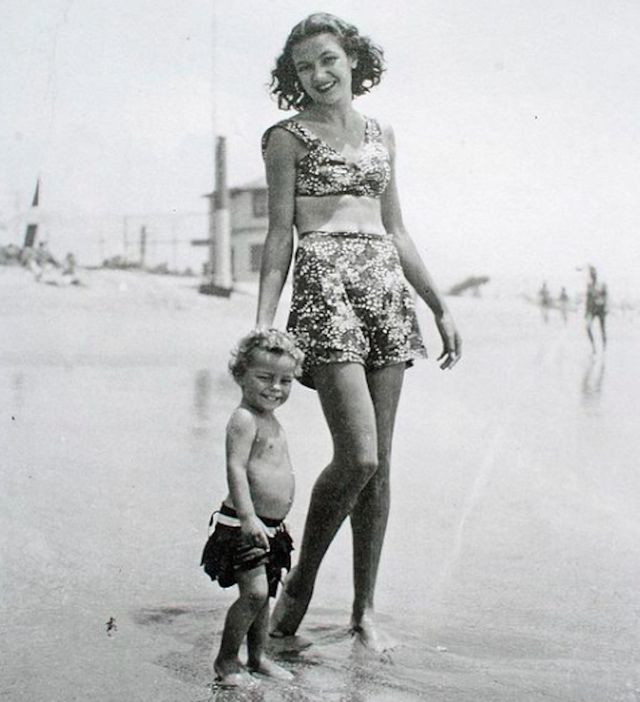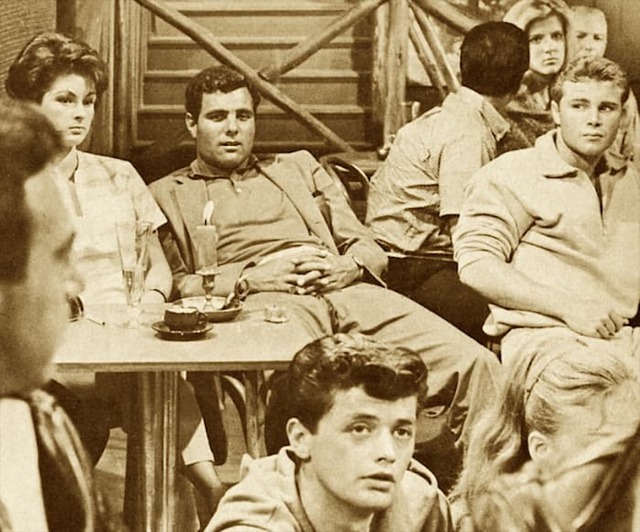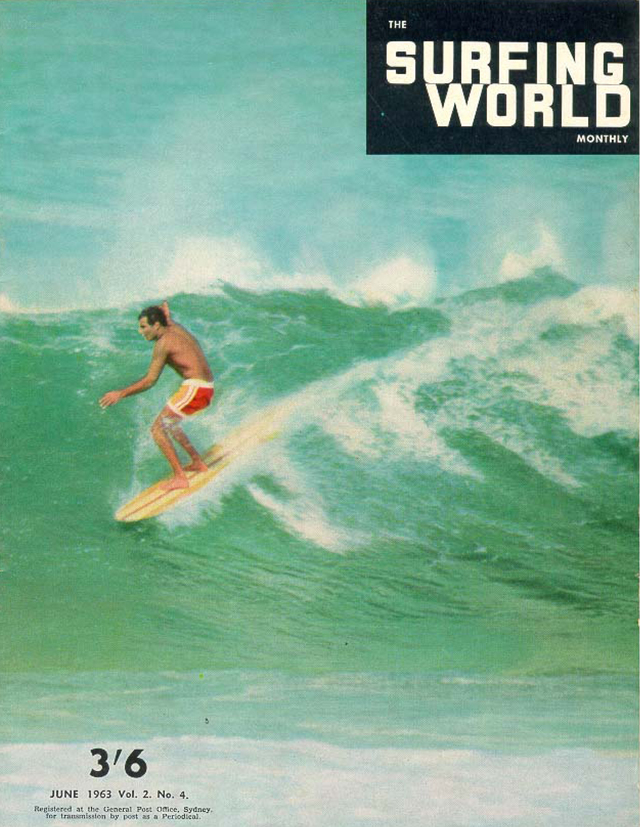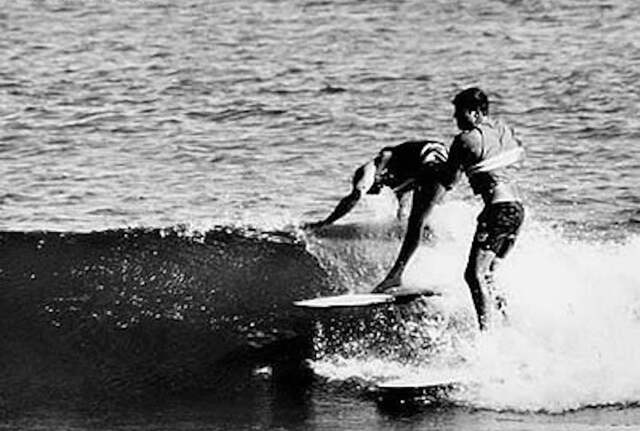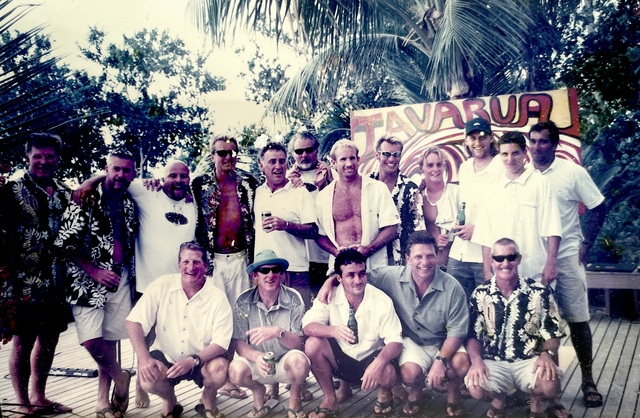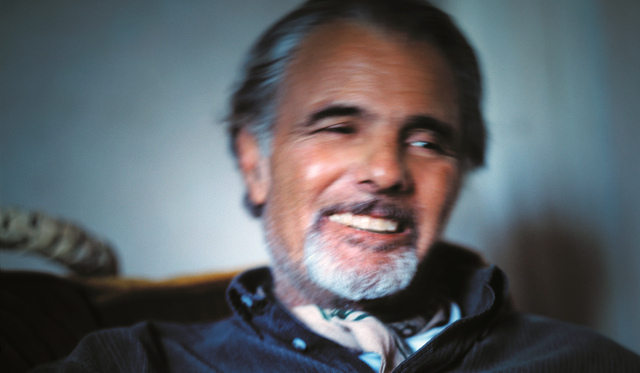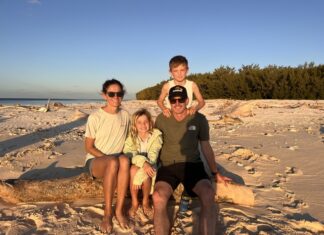Even though I’m trying to be a somewhat retired gentleman, August and September have flown by in a haze of jobs and deadlines, so much so that I clean forgot about Miki Dora’s 90th birthday last month.
Dead now for nearly 23 years, Da Cat, the Black Knight of Malibu, or just plain Miklos Sandor Dora would hardly have noticed, even if, through no fault of his own, he was blowing out celestial birthday candles in heaven on 11 August. But since I have made a point of commemorating his memory on each of the milestone birthdays of my early hero, one-time enemy and friend and neighbour over the last stanza of his unusual life since 2004, forgive me if it’s better late than never.
Since this is theoretically a surfing column, I’ll make the assumption that many of you have heard or read of this bloke – a few times right here, if nowhere else – and I’ll skim through the back story as briefly as possible. Born in Budapest in 1934 to a teenaged Hungarian Hussar named Miklos K Dora and his even more teenaged wife, a beautiful American named Ramona Stancliff (the two had hastily tied the knot a couple of weeks before the birth), Miki moved to California with his parents in early 1935, where the well-connected Miklos opened a restaurant he called Little Hungary on Hollywood’s Sunset Strip. Miki’s earliest memories were of being coo-cooed by European Hollywood celebrities like Marlene Dietrich, Billy Wilder and Frederick Kohner while he and his mother dined at a corner table and Miklos worked the room.
Screenwriter Fred Kohner would 20 years later write a little novel about his daughter Kathy’s surfing adventures at Malibu with Miki Dora and the rest of the crew. He called it Gidget. It did quite well, became a hit movie, kick-started a beach culture.
The Miklos/Ramona marriage was doomed to fail, she ran off with a crazy lifeguard named Gard Chapin and Miki grew up being shuffled between schools (at Hollywood High he was briefly in a class with the legendary James Dean) and dividing his leisure time between San Onofre with Gard and Malibu with the most progressive surfers in the world in the early ‘50s. By the time he was 18 Miki was the best surfer at First Point and the most aggressive in the water. However badly he behaved, his stylish, cat-like moves up and down the deck of the new Malibu chip finned surfboards were poetry in motion. He was Da Cat.
By the time film-maker Jack McCoy introduced me to Miki in Bali in 1975, Dora was an old man of 40, a somewhat surly legend but a legend nonetheless. When we visited him at the then-folksy Legian Beach Hotel and requested an interview, he was happy enough to talk story for a couple of hours, sprawled on his bed in the darkened room, but it was not to be a verbatim interview – no notes, no tape, no photos. When we were done I got Jack to drop me off the back of his bike at Pranotu’s cane juice bar in Kuta where I sat in a corner and juiced up while I wrote down everything that I could remember that Dora had said.
That season I surfed with Miki a few times at Uluwatu on the Bukit, then an arid bushland, now a crowded villa world. He was friendly enough, but once “A Conversation With Miki Dora” appeared in Tracks magazine, he brushed me for more than 20 years, until we found ourselves neighbours in the same small apartment block in Guethary, France.
Although throughout his life Miki was usually the screwer rather than the screwee, it’s fair to say that I screwed him over the first time we met, but by the late ‘90s we were both on the Quiksilver Europe payroll, and against all odds, we became friends. That friendship was tested at times, most notably when I negotiated his guest appearance at the Noosa Festival of Surfing in 2001.
“There’d have to be a contract,” he said.
There was, and it stipulated that we paid for almost everything and he was obligated to do nothing, which I admit sounds like a bad deal, but Miki was a huge hit! There were Da Cat sightings, real or imagined, and old surfers are still talking today about that time they said gidday to Miki Dora at the surf festival in Noosa. I’ve written here before about the international phone call bill at the hotel he wouldn’t pay, the thousand bucks or so he racked up at the Noosa Springs pro shop in my name, and many more, so we won’t go there again.
But life in France that summer resumed its usual leisurely pace in our village, until Miki got his terminal cancer diagnosis. He’d still appear in the surf at Guethary from time to time, sitting wide and catching a few on a very big gun, but then I’d see him gasping as he climbed our stairs to his apartment and the oxygen tank. But he rallied to celebrate his 67th birthday at a wonderful dinner party at Chez Francois above the Bidasoa River on the Spanish border, where Miki worked the room, shaking hands and smiling, totally out of character.
We said our goodbyes in November and he flew back to California where he died at Miklos Sr’s home in Montecito on 3 January 2002.
FOOTNOTE: Some of my memories of Miki also appear in David Rensin’s brilliant 2008 Dora biography, All For A Few Perfect Waves (Harper).

